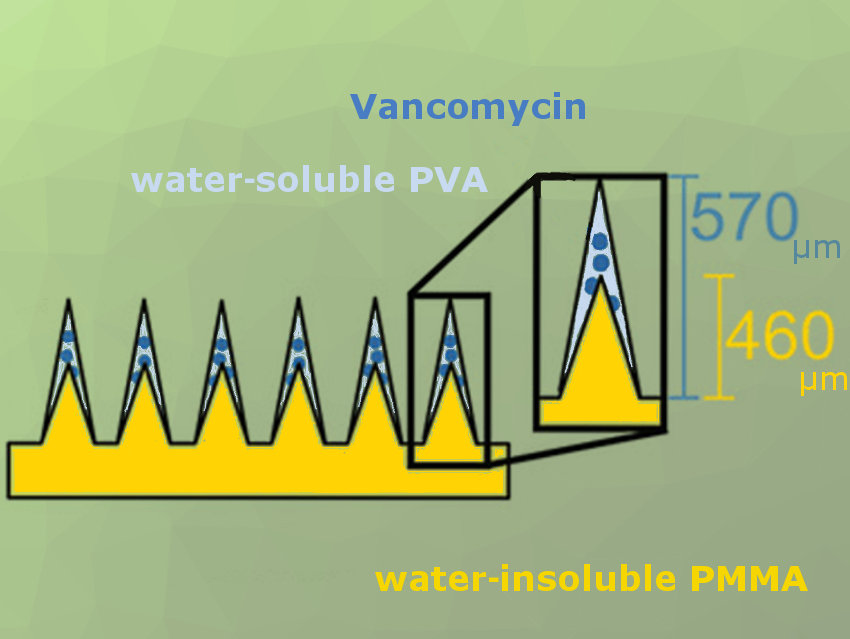Skin and soft tissue infections (SSTIs) caused by methicillin-resistant Staphylococcus aureus (MRSA) are a major healthcare burden and are often treated by intravenous injection of the glycopeptide antibiotic vancomycin (VAN). However, the low local drug concentration in the skin limits treatment efficacy, and systemic exposure promotes the development of resistant bacterial strains. Topical administration of VAN on the skin is ineffective because its high molecular weight prevents transdermal penetration.
Georgios A. Sotiriou, Karolinska Institutet, Stockholm, Sweden, and colleagues have produced microneedle (MN) arrays loaded with VAN to target skin infections caused by MRSA. MNs are micrometer-sized needles organized in arrays that can penetrate the stratum corneum of the skin and deliver drugs that are normally prevented from intradermal delivery.
The VAN-containing tips of the arrays are made of a water-soluble polymer (PVA; pictured light blue). The MN tips are supported by a water-insoluble polymer layer (PMMA; pictured yellow) in which VAN is poorly soluble, allowing precise drug dosage formulation.

The researchers showed that the VAN-MN arrays can effectively penetrate through the dermal barrier of the skin. The majority of the delivered VAN dose remains in the skin for 24 h. The locally delivered VAN is in active form and can reduce MRSA bacterial growth both in vitro and ex vivo.
Such local VAN delivery reduces systemic VAN exposure, minimizing side effects and the emergence of VAN-resistant MRSA strains in uninfected body parts. The developed VAN MN arrays can be extended to multiple drugs.
According to the researchers, this study lays the foundation for future clinical application of such a novel delivery route for VAN. Future studies should evaluate the arrays against in vivo skin infection animal models, such as humanized mouse models.
- Vancomycin‐Loaded Microneedle Arrays against Methicillin‐Resistant Staphylococcus Aureus Skin Infections,
Jill Ziesmer, Poojabahen Tajpara, Nele‐Johanna Hempel, Marcus Ehrström, Keira Melican, Liv Eidsmo, Georgios A. Sotiriou,
Advanced Materials Technologies 2021.
https://doi.org/10.1002/admt.202001307




